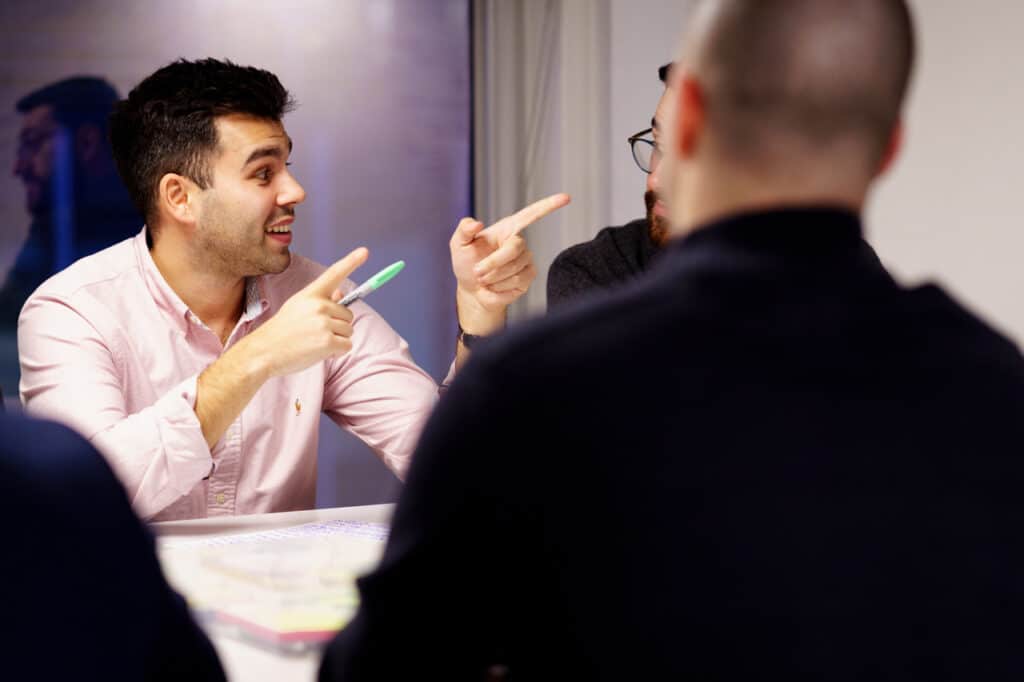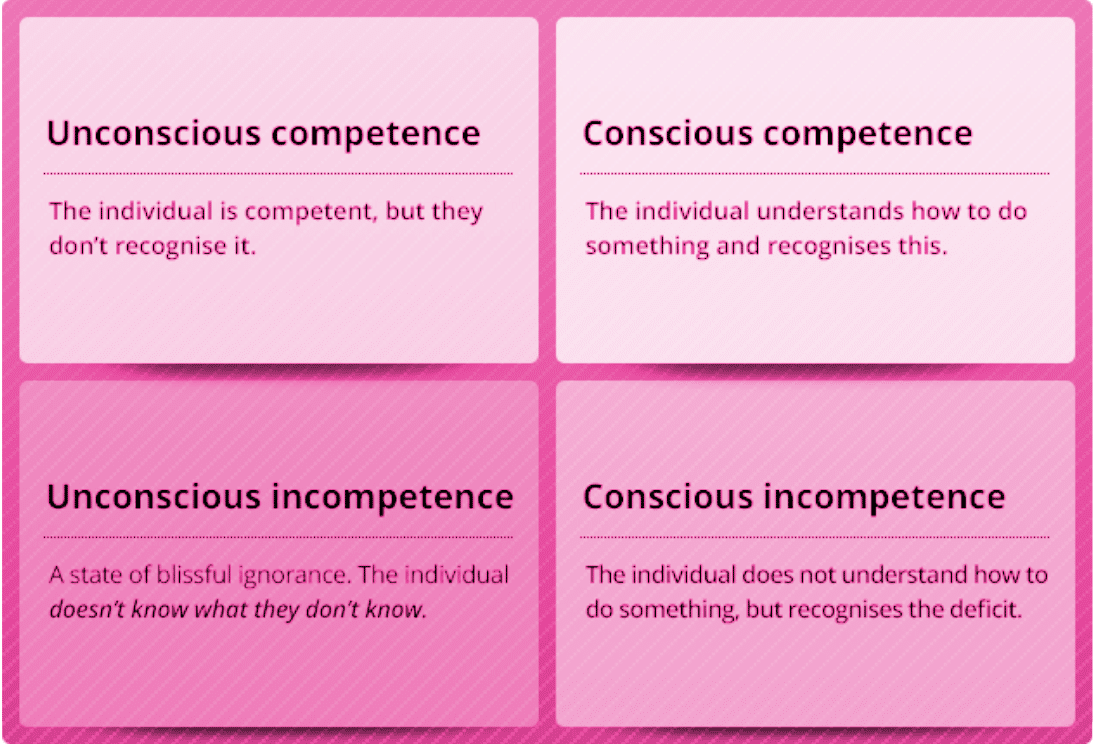The relationship between skills development and self-awareness
Unconscious Incompetence
Unconscious Incompetence
The relationship between skills development and self-awareness

Meet the author
“Ignorance more frequently begets confidence than does knowledge.” (Charles Darwin, 1871)
“When people are incompetent in the strategies to achieve success and satisfaction, they suffer a dual burden. Not only do they reach erroneous conclusions and make unfortunate choices, but their incompetence robs them of the ability to realise it.” (Kruger and Dunning, 1999)

Unconscious Incompetence
The consciousness-competency model is a very simple way of articulating the relationship between skills development and self-awareness. It can be a really useful way of thinking about the human element of business processes and there’s a significant body of knowledge that uses the model as a way of thinking about learning progression.
You may have already worked out that the people to be most wary of are those who are “unconsciously incompetent”. That is, those people who think they know what they’re doing but actually don’t have a clue. It’s a scenario that will be familiar to many: those projects that seem to be running like clockwork until the testing phase arrives, when issues about which teams had no prior knowledge begin to emerge.
Once this realisation dawns, the unconscious then become conscious incompetents. And upon finding these first defects, these people become much more useful. They’re aware of their limitations and they know they need help, meaning the issues can be solved and the project can move forward.
But the division between “conscious competence” and “unconscious incompetence” is far narrower than most of us would be prepared to admit. Both types of people think they’re competent – but one of them isn’t, only they don’t realise it yet. They only way they’ll find out is to measure the success of their projects. And even then, you must beware the scale trap: someone who is consciously competent on projects involving teams of less than 25 people may be unconsciously incompetent on projects of 250+. Those blind spots that are of marginal significance for a small project may become crucial when on a larger programme.
I must confess that perhaps my favourite type of individual to work with is the unconscious competent. Typically, they’re conscientious, working diligently to achieve success and all the while unaware of quite how good they are at their jobs – meaning they could afford to relax ever so slightly.
So, where do you and your colleagues sit within the model?

